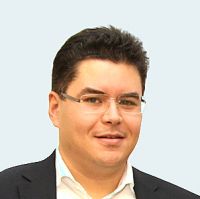Recommended specialists
Article overview
Reproductive medicine - Further information
Reproductive medicine
In the search for a specialist in reproductive medicine you will find medical experts in reproductive medicine. Your partnership has remained childless due to fertility problems and you are seeking an experienced reproductive medicine specialist for artificial insemination? We will help you find the right specialists in reproductive medicine.
Reproductive medicine involves questions and methods of natural and artificial reproduction. Specialists in reproductive medicine carry out hormonal studies and hormonal stimulation in men and women who are unable to have children. A reproductive medicine expert is consulted if pregnancy has not occurred during two years of having unprotected intercourse.
If physical factors are the basis for childlessness, reproductive medicine specialists inseminate the woman with sperm in an artificial manner.
The reproductive medicine expert has access to a broad spectrum of state-of-the-art diagnostic and therapeutic methods. Before being authorised to practice reproductive medicine, the reproductive medicine specialist must complete three years of postgraduate training.
Therapeutic range of services in reproductive medicine
The therapeutic range of services in reproductive medicine essentially comprises abortion diagnosis, hormonal studies and hormonal stimulation, semen analysis, hysteroscopy, intrauterine insemination (IUI), homologous insemination (sperm transfer), heterologous insemination (donor sperm transfer), in vitro fertilisation (IVF) (test tube fertilization), intracytoplasmic sperm injection (ICSI), cryopreservation (deep freezing) of embryos and sperm, assisted hatching and prenatal diagnosis.
How is male infertility determined?
The suspicion of infertility in a male is confirmed or ruled out through the spermiogram. The ejaculate is analysed according to a standardised procedure. A spermiogram is carried out when couples are unsuccessful in becoming pregnant. A spermiogram can determine whether an insufficient sperm quality or quantity is the cause of the lack of success in becoming pregnant. In order to effect a meaningful spermiogram, after a waiting period of three to five days the sperm is obtained through masturbation. After this period, the ejaculate contains the maximum number of healthy sperm. The ejaculate is then examined macroscopically (liquefaction time, volume, colour, pH) and microscopically (total sperm count, sperm concentration, sperm motility).
To carry out a spermiogram the ejaculate is placed in a sterile container and the test is done under clean-room conditions. When the spermiogram is carried out, the sample must not be older than one-half hour. The quality of the ejaculate can fluctuate significantly. Thus the spermiogram is carried out up to three times before the cause of the infertility can be established.
How is infertility determined in women?
If she is unable to become pregnant, the woman undergoes various gynaecological examinations. This includes scanning of the reproductive organs. Malformations and changes in the uterus, fallopian tubes and ovaries can be diagnosed by way of ultrasound. The causes of inability to become pregnant are often based on a malfunction in the course of the menstrual cycle.
Which methods are available to be used in instances of infertility?
If physical causes are the basis of infertility, in most cases a reproductive medicine specialist carries out artificial insemination. With artificial insemination, the fertilization of the oocytes with sperm takes place outside the body. The necessary sperm is usually obtained through masturbation. On artificial insemination, the reproductive medicine specialist can choose from amongst different methods.
- In vitro fertilisation
In this form of artificial insemination, the reproductive medicine specialist stimulates the maturation of several oocytes in the ovaries of the woman with the aid of hormones. Later, the mature oocytes are removed surgically and placed together with the male sperm in a test tube. - Intrauterine insemination
In this form of artificial insemination, the reproductive medicine specialist places prepared sperm in the uterine cavity at the time of ovulation, thus facilitating greater likelihood of pregnancy.






